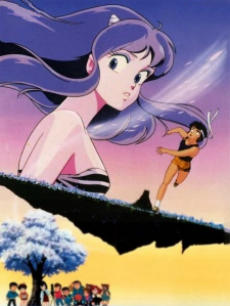SENNEN JOYUU
MOVIE
Dubbed
SOURCE
ORIGINAL
RELEASE
September 14, 2002
LENGTH
87 min
DESCRIPTION
Millennium Actress blurs the lines between the past and the present, and truth and fiction, when a documentary filmmaker fulfills his quest to find the legendary actress Chiyoko Fujiwara, and learn why she mysteriously vanished at the height of her brilliant career. When Chiyoko grants the filmmaker’s request, he, in turn, presents her with a token – a key she had lost and thought was gone forever. The filmmaker could not have imagined that the key would not only unlock the long-held secrets of Chiyoko’s life, but also his own.
(Source: Dreamworks)
Note: The film received an early premiere at the Fantasia Film Festival on July 28, 2001.
CAST
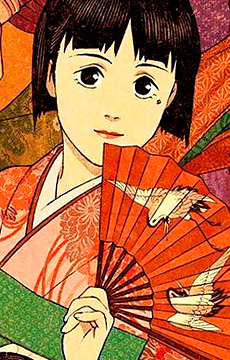
Chiyoko Fujiwara
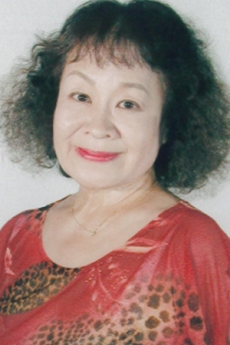
Miyoko Shouji

Genya Tachibana
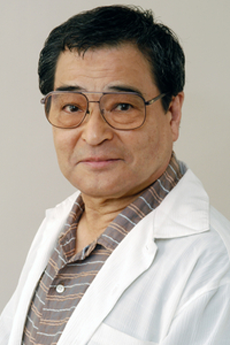
Shouzou Iizuka
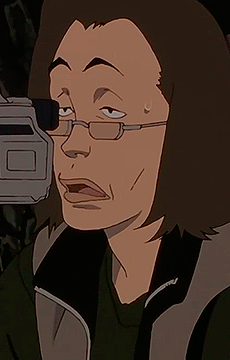
Kyouji Ida
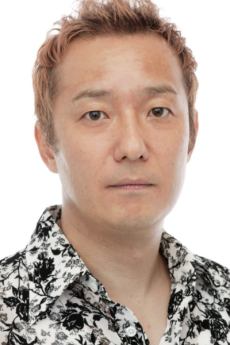
Masaya Onosaka
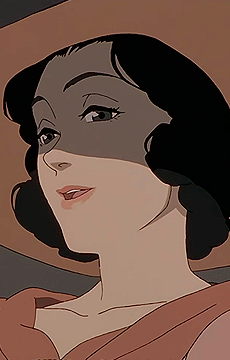
Eiko Shimao
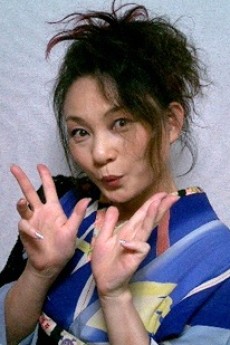
Shouko Tsuda
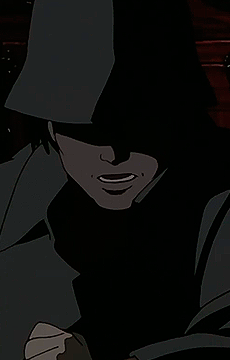
Kagi no Kimi
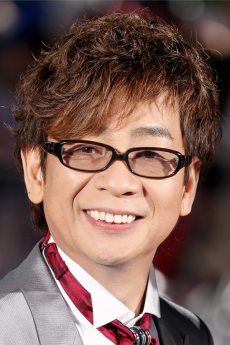
Kouichi Yamadera
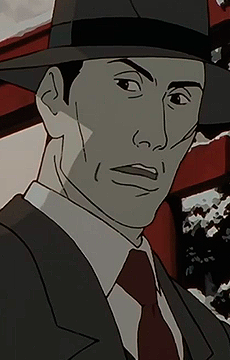
Kizu no Otoko
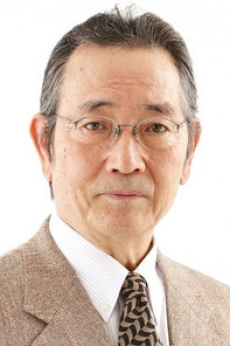
Masane Tsukayama
REVIEWS

Xelrog
90/100A brilliant cinematic experience from the greatest director of our time. His technique really shines.Continue on AniListMillennium Actress is the late Satoshi Kon's second directorial work and, while not as dark as Perfect Blue was, just as intricate and creatively written as it or any of his movies. For those of you unfamiliar with Kon's work, you should know now that it's very cerebral and it can be very hard to follow if you're not paying attention. If you have a short attention span or just don't like to think... well, first of all, I pity you, and second, this movie's not for you.
Writing: As with any of Kon's movies, the writing and direction is where it really and truly shines. The story of the film is a retelling of an old actress's several-decade acting career through an extended interview with a documentary filmmaker and his cameraman. Throughout the movie, scenes jump between the quiet mountain home in which the interview is taking place, Chiyoko's flashbacks of her life off the set, and flashbacks of the many various roles she played in movies throughout her career. These three stories intertwine in what can only be called organized chaos as events from each of these settings overlap and feed into one another, slowly piecing the whole of the story together in much the same way Perfect Blue did (though, between the two, I'd say this one is easier to follow). The characters all have believable and well-established histories that meld with one another's (barring the lovably oafish cameraman, who's just along for the ride) and it all ties together neatly in a sad but beautiful conclusion that, hopefully, leaves the viewer wanting for nothing.
Art: As with any of Kon's works, the art is a touch above the rest. It doesn't go overboard with digital effects, but it is drawn in a very detailed and realistic style that makes it a bit easier for those more familiar with the live action film medium (unlike myself) to identify with. The animation is fluid, the shading subtle, and I can't speak of any complaints with the visuals as a whole.
Sound: The Japanese dub is up to standard with reasonably respected live-action Japanese films in terms of acting. The English dub is, I will say, passable. Not fantastic, but not necessarily bad, either. Truthfully, there's not much wrong with the acting or voice work in the English version--the biggest reason it loses points is for a couple pronunciation issues that anyone who knows anything about anything about Japanese is going for find very grating on the ears (sam-yurr-eye). It's also worth noting that the dub is Region 2-exclusive, meaning it was never released stateside and, if you want a copy for yourself, you'll have to import it from somewhere like Europe as I did. As far as music goes, this was the first Kon film in which longtime collaborator Susumu Hirasawa composed the soundtrack. Hirasawa is also the composer for the original Berserk anime series, Paranoia Agent, Tokyo Godfathers, and Paprika. First entry perhaps excluded, you can't really go wrong with the guy.
Again I say: Millennium Actress is a very cerebral and (at least relative to most anime) hard-to-follow movie, but a great one largely for these reasons. If you're willing to sit down and go for a ride, it can take you on a very engaging trip, so if you feel you're up to it (or if you've seen and enjoyed any of Kon's other works), I highly recommend this fine piece of cinema.

CodeBlazeFate
95/100Millennium Actress is a spellbinding film.Continue on AniListspoilers ahead
Millennium Actress is a spellbinding film. Satoshi Kon’s second cinematic masterpiece is a harrowing drama that plays with reality and fiction to tell an intricate tale full of powerful twists and turns. In many ways, it’s like a novel, sucking us into their world and forcing us to observe. More than that, it gives us the power to interact with the story in some way, as our interactions both suck us in further and become our only link to reality.
The film features a former star, Chiyoko Fujiwara, and her two interviewers, Genya Tachibana and Kyouji Ida. As they sit down and prepare for filming, our leading lady invites us and these two men into a life story so mesmerizing it takes on a life of its own, blending and camouflaging reality with the eight fictions that embodied her life as she starred in them. We along with these men are mere witnesses to the tale that unravels before us, as everyone is suddenly thrown from her true story to her work and back again, and both life and art begin to imitate one another. Everyone enveloped in her story act in different ways. Genya enacts some of the roles with her, fully immersing himself in her films as both an avid fan and loyal crew member of her works. Kyouji reacts with bewilderment, often taking shots at his superior and cohort, and remarking on the absurd situations behind his camera. The former becomes the immerser, the latter becomes the spectator. We, the audience, become both. We witness and take part in every scene, even those they only hear instead of enter. At the same time, there are moments where only they can interact with her, namely when an outside force disrupts her, including her own vulnerability.
You see, she is dying. On top of that, she is mournful. Her life and stardom were built on a promise that could never come true. An injured man showed her a key, one she would bestow upon herself after having found it in the ground soon after. The man lived, for a time, but she would never see him again. All he left behind are a key and a painting, the latter of which she only knew about years later. Not even a glimpse at his face was left for her. Her career, which was ever so reminiscent of the life she led as a result, was predicated on a childlike fantasy, one where she would meet him again and proclaim her love for him. Only late in life, divorced from industry, does she recognize this. It wasn't the man's death that taught her this, for the man who killed him told the person who would interview her, and he kept it a secret until the very end. Instead, it was reality that did this to her. The old, spiritual hag that cursed her to wander in one of her roles, and the excitement and questioning from other children, were what killed the child that propelled her through the industry for so long. The old and jealous misled her constantly, and the young teased her just as much. After eight movies, once both had gotten to her, she knew she was done. Perhaps the films she starred in embodied her life too well.
It isn't just the narrative that pulls us into this picture. Satoshi Kon's masterful cinematography and the powerful, blistering chaos he instructed the team at Studio Madhouse to emphasize in every scene immersed us even further. Minor details add a sense of urgency to every scene, and hint at what's truly going on, creating a tremendous sense of rewatch value. Considering the film's gorgeous use of sepia tone in its backstory, which not only evolves with the narrative, but was actually done manually, add further layers to this rich tale. Susumu Hirasawa's electrifying score added further weight to this sense of depth and rewatcability, and I can't even begin to do either of these two factors enough justice. Every single one of these factors intersects into this whirlwind spinning us and Chiyoko's interviewers around, forcing us to act and react upon every new twist and turn thrown our way. It's immersion as powerful and intricate as the tale itself. Only towards the end does our puzzle fully reveal itself. Only at the end do we know what happened at the final scene of Chiyoko's last film, one that Genya is forced to pause and rewind so he can meet her and learn of her life's story. Only then does Chiyoko's life end, understanding that the fantasy that kickstarted and embodied her life didn't really matter after all. The physical and metaphorical key was only there to unlock her purpose, not some ending where she and her love lived happily ever after.
Written and Edited by: CodeBlazeFate
Proofread by: Peregrine
TheWinterKid
79/100"Since when did this become a film?!"Continue on AniListFathom Events Remastered Re-Release - Subtitled
A literal and figurative cycle of tragic professionalism and loss, exaggerated for audiences who see everything, and yet nothing, about our protagonist's journey and psyche. Chiyoko is motivated by a naive love that is long-lasting, establishing a story which, despite all of its repetitive narrative beats and lack of space given to our protagonist's motivations and the consequences from them, is visually satisfying and highly well-directed by the late Satoshi Kon. Not to mention, the film's context within itself has a disturbing undertone; an elderly woman losing memories is able to summarize the base of her life through the roles that she has played - or, in other words, roles that define her, externally. How tragic is that?
Just to be clear, Millennium Actress' narrative, while fairly well done in its entirety isn't its strongest device, though credit is due for exploring characters who feel real. The choice of having the filmmaker and the camera guy follow Chiyoko through her life, while clever in concept, eventually gets old not too far into the story, though the inclusion of Genya as different characters was absolutely the best part. The early revelation of the reason for Chiyoko's career is simplistic in its execution, and insignificant in its impact. Do I want her to find the painter? Kind of. Is the film going to keep throwing obstacles at her during her quest? Obviously. Will they ever be able to be together? Seeing how the film unravels, the outcome is not surprising. But it's not a huge blow to the film's levity; a simple "you can't entirely trick me this time" doesn't matter.
The journey is a visually-stunning moving portrait and tribute of Japanese culture. The lesson about memories, mainly in regards to Chiyoko's, can seem a bit disjointed, but the blur between the lines of fiction and reality is one deserving of experimentation, which Kon crafts exceptionally. Animation-wise, aside from some slacking shots of character movements and missing frames, is colorful, yet cold; a perfect choice for this story. Its soundtrack absolutely floored me as well, even when it was included in the least-opportune moments (for instance, using excitingly slow music for drama scenes that are more human and less grand-in-scale).
This film isn't as emotionally-powerful as it could've been, but it will otherwise leave a lasting impression on you with those final lines of dialogue, making the experience worth it.
The chase for the most important thing in life is everlasting.
SIMILAR ANIMES YOU MAY LIKE
 MOVIE DramaPERFECT BLUE
MOVIE DramaPERFECT BLUE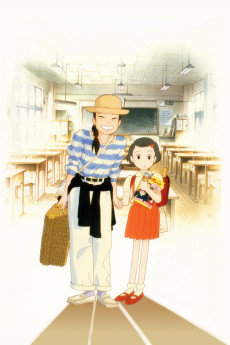 MOVIE DramaOmoide Poro Poro
MOVIE DramaOmoide Poro Poro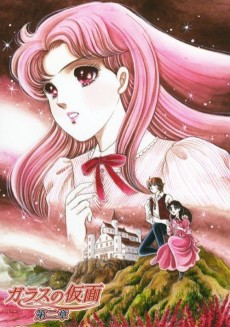 ANIME DramaGlass no Kamen
ANIME DramaGlass no Kamen MOVIE AdventureTokyo Godfathers
MOVIE AdventureTokyo Godfathers ANIME DramaMousou Dairinin
ANIME DramaMousou Dairinin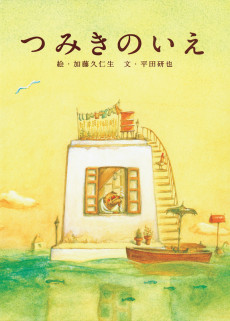 MOVIE DramaTsumiki no Ie
MOVIE DramaTsumiki no Ie
SCORE
- (4.05/5)
MORE INFO
Ended inSeptember 14, 2002
Main Studio MADHOUSE
Favorited by 2,238 Users

